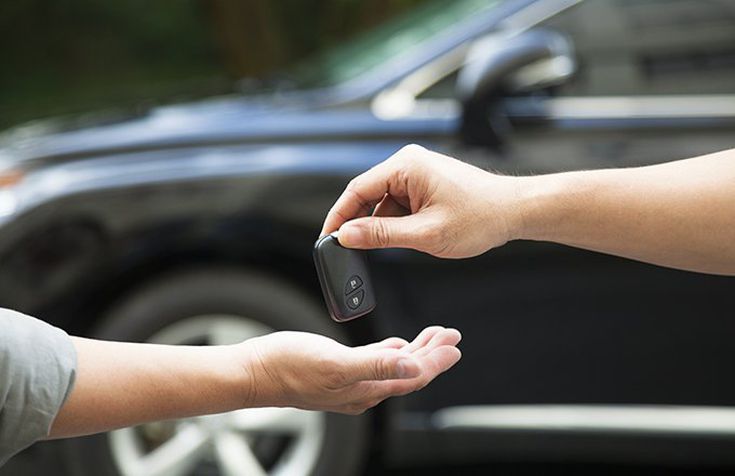One of the biggest money sacrifices a person can make is having a new car. There is the down payment, annual premiums, maintenance fees— and let’s not talk about those costly trips every week to the gas station. Despite the heavy costs that a new car entails, many people need a vehicle for their everyday lives.
What We'll Cover
But is it the right option to lease or to purchase a car? When you are trying to make cost-effective choices, take the pros and cons of leasing or purchasing into consideration.
Purchase A Truck
Buying a vehicle requires a tried and tested procedure that has been done forever— you’ll have to take out a loan from a bank, the loan buys the car for you, and you’ll be making monthly payments back to the bank before you pay off the loan. The method means that the car is yours to do with it whatever you want. That said, buying a car always has both pros and cons.
The Profiteers
Buying your own car provides plenty of advantages. For example, all of your monthly contributions go toward your actual car ownership. When you decide to purchase it, the costs are upfront, so no need to think about extra fees from showing up (apart from future interest).
You do get to choose from a wide variety of styles, engines, colors and more when purchasing a car. You can customize your car to match your needs entirely.
Alternatively, when you’re buying you should find resale interest. You can purchase a car that retains its value if you select the right color and choices, which can give you a little money if you sell it later.
You will own and keep the car as long as you want. It also means you can do so anytime you want, whether you wanted to sell or trade in the car. You will not be able to do so with a lease agreement.
The Cons
As you pay for the entire car, insurance and other expenses, your monthly costs are likely to be higher than a monthly lease.
Another potential financial burden is loss of interest. If you ever want to sell the vehicle, it will lose its trade-in or resale value over time, meaning you will not be getting as much money back as you might expect.
Overall it’s pretty easy to buy a car. You pay what you owe and you own the car.
Lease A Truck
It is less easy to rent a vehicle than to take out a car loan. Those that want to rent will make monthly payments but don’t own the car at all. Essentially, it’s like long-term car rentals. If you decided to buy the car at the end of the contract, you occasionally have the choice but it’s more common to simply give the car over to the dealer.
Leasing has become increasingly popular, with the market rising over the past five years by a whopping 91 per cent.
The Profiteers
Monthly fees are also manageable for car leases. This is because you’ll only pay for the decrease in value, interest, taxes and charges of the car. In a lease deal the down payment (or cash due) is sometimes lower, or even non-existent.
Leasing provides you with options, too. It gives you flexibility to turn up your vehicle every two to three years when you contract. Trendsetters will be able to drive the latest car models and take advantage of new, up-to-date technologies. Also, the short lease period means that you will never have to think about the expiring warranties and never have to pay for repairs. Signing a lease erases the responsibility of having to swap or resell the vehicle when you feel it is time to move on. Instead, you just hand it back to the dealer. It is especially useful for someone looking for a short-term deal, or who does not want to sell a vehicle.
TheCon
The trade-off for lower maintenance payments is often the lease limit3 on the sum that you are legally allowed to drive the car. It is normal for a lease to require only 10-15,000 miles4 per annum on a contract. A leasing contract could restrict what you actually want the car to do. If you drive over the defined mileage limit, which is something you wouldn’t have to think about if you owned the vehicle, you’ll end up paying additional charges on the vehicle.
And you may not be aware of an extra expense when leasing a car: gap insurance. This extra cost is not required, but in case anything happens to the car it’s a highly recommended add-on. For example, you might need to pay the remainder of the car’s balance out of pocket if it’s totaled, which can cost thousands of dollars. Gap insurance will cover you for that premium. It’s a good safety net to have but you couldn’t possibly use more money to splash out on it.
In addition, you might be responsible for extra penalties for physical harm such as scratches and dents when you return your leased vehicle.
Your lifestyle will help you find out what’s right for you
It’s not a race to determine how you’ll pay for a new car. Usually it becomes clear, after considering the pros and cons of both options, whether leasing or renting is the best choice for you.
Most dealerships have loan and lease options. If you’re torn between the two, do your research before going to the dealer. Consider the car loans and interest rates available, and check for lease deals in your area online. You can consider a price that makes buying more worthwhile-or more worth leasing.
The responses below are not provided, commissioned, reviewed, approved, or otherwise endorsed by any financial entity or advertiser. It is not the advertiser’s responsibility to ensure all posts and/or questions are answered.





